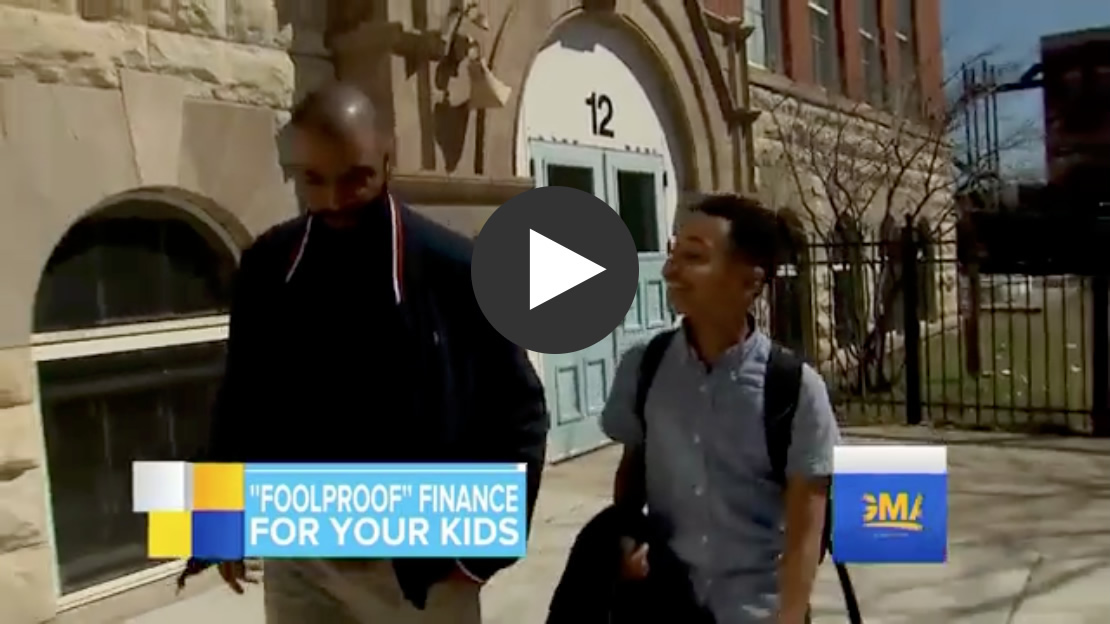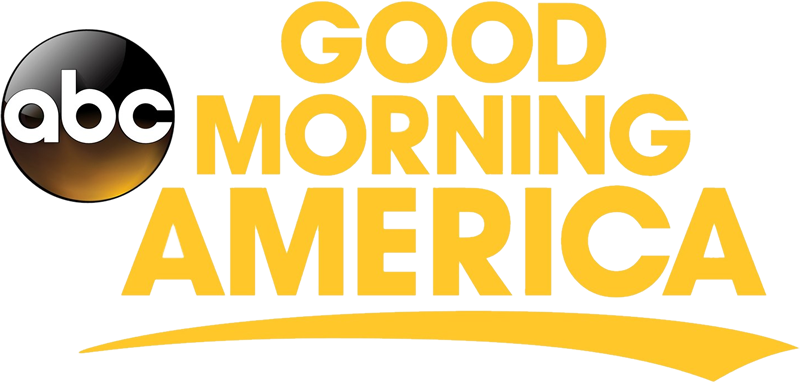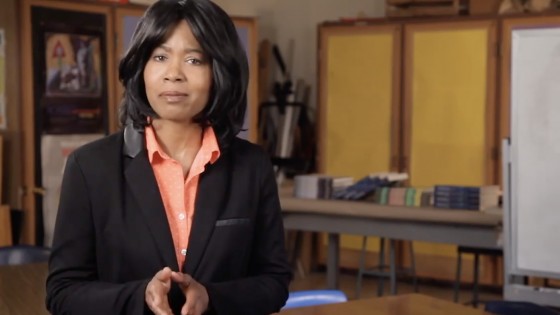Middle School Remote Learning from FoolProof
A Turnkey and Ethically-Driven Consumer Life Skills Program
Financial Literacy, and a Lot, Lot More...
In an upside down world we teach kids the power of healthy skepticism, caution, character and calmness.
Register Your Teacher Account Now
Or scroll down to watch a few
pretty interesting videos...
Background:
FoolProof's remote high school curriculum is already used in over 10,000 schools.
Now: our remote Middle School program is available to teachers.
It's groundbreaking. Scroll down for details.
The Solution:
Out-of-school children are now faced with building decision-making habits that will impact the quality of their lives.
Marketers are hard at work trying to shape many of those habits.
The FoolProof Foundation has developed a consumer life skills curriculum to help teachers and mentors instill habits in children which may counter some of the marketing industry's efforts.
Child advocates and teachers—not marketers—developed our curriculum.
More Than Money Lessons
The FoolProof curriculum goes beyond traditional financial literacy.
We immerse middle-school students in the importance of developing three core habits:
Healthy skepticism
Trustworthiness
Personal responsibility
CEE Compliant
Our curriculum meets all the Council for Economic Education standards and guidelines for financial competency.
FoolProof's middle school curriculum is peer-to-peer and engaging.
Our Curriculum Is:
- Free.
- Web-driven.
- Advertising-free and contains no hidden agenda.
- "21st Century Learning" compatible.
- It features videos, highly interactive conversations, animation and text.
- It's labor-saving and virtually turnkey for teachers and mentors.
- Students literally register themselves.
- Teachers and mentors can control and monitor all work from any device.
![]()
What You'll Learn Here About Our New Middle School Curriculum:
You'll see a few of our 20 topics and 50 videos and animations.
You'll also see how we use peer-to-peer teaching to connect with middle schoolers.

Who will be in charge of your life?
That's the big question we ask middle schoolers.
Watch the introductory video.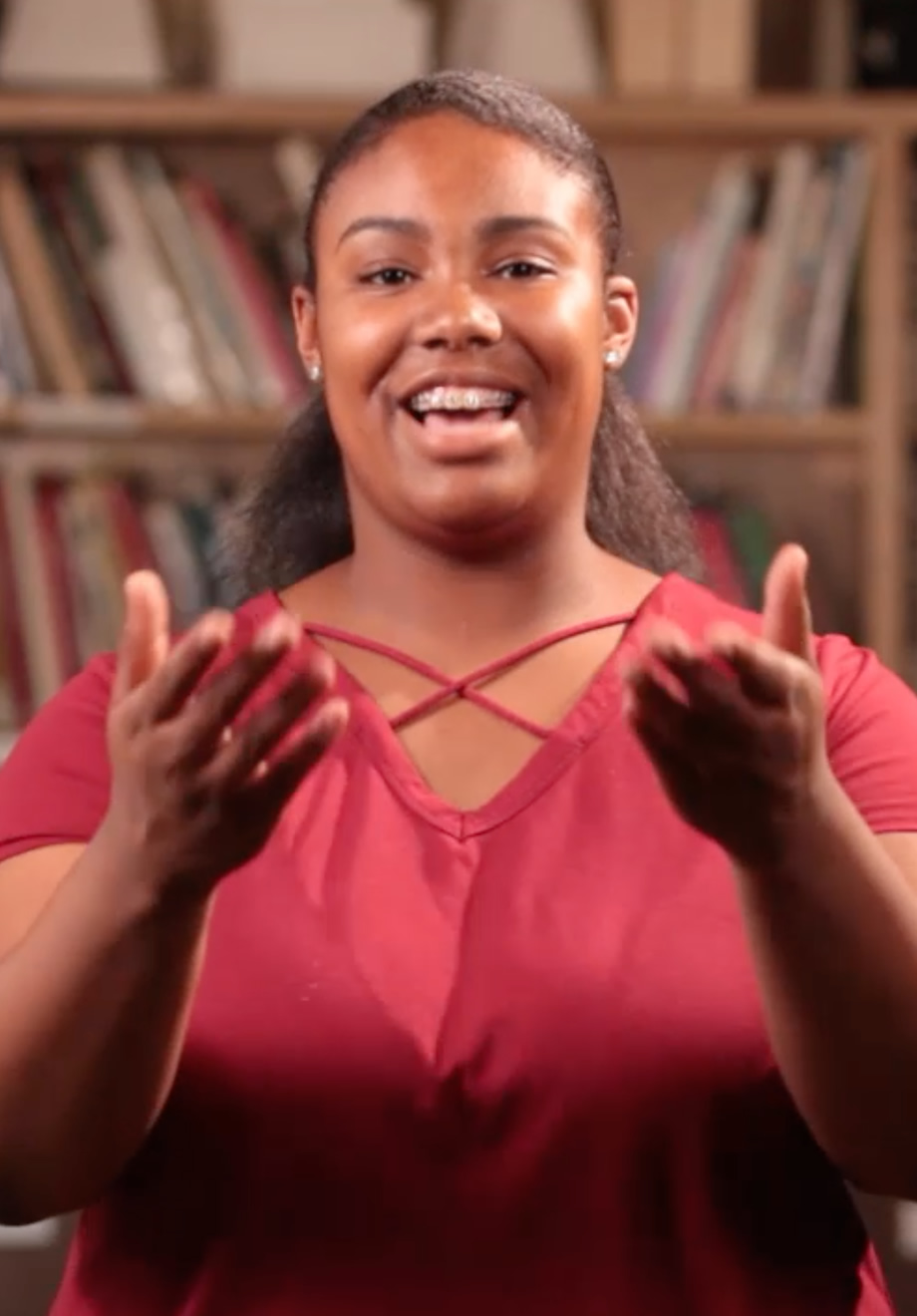
We use positive messaging to simplify complex thoughts.
Here’s an example:
A student has been looking at the concept of limited time and money, a complex and potentially stressful topic in Module 3.
Earlier in the module the student has seen that magical powers don't work to allow you to do two things at once.
Lauren delivers this message.
A big topic throughout the curriculum:
What are Tony the Tiger and friends really designed to do?
You already know that marketers use branded cartoon characters and sports figures to sway kids.
Middle-school kids are old enough to understand the impact of that marketing technique on their welfare.
We tackle this issue directly using well-known brands as examples.
Our message about Tony the Tiger and friends: They’re not your friends. Some marketers will mislead you if you’re not careful.
So, who is ultimately responsible for making good decisions on this stuff?
Look at this samplelifted from the module.

What FoolProof tells middle school students about debt.
Debt may be necessary, but debt is not "good."
Here's our introductory video.
How we tackle the importance of making good choices.
A middle-school student is emotionally capable of building the habit of making good choices.
A little hypnosis does the trick. Or, does it?
Here's the opening video.
We challenge the student to think, not automatically accept.
Here's an example:
FoolProof closes out the topic.
We use animations to engage the students.
Here's an example:
What can happen when you're not a healthy skeptic?
Okay, you're a student. Marketers are bombarding you with biased or inaccurate info.
You see a "story" about a new game.
The maker of the game says, "Everybody's crazy over this game!"
You don't know gamers rate the game as boring...
You trust the maker of the game and buy it.
The game turns out to be totally lame.
FoolProof shows the result.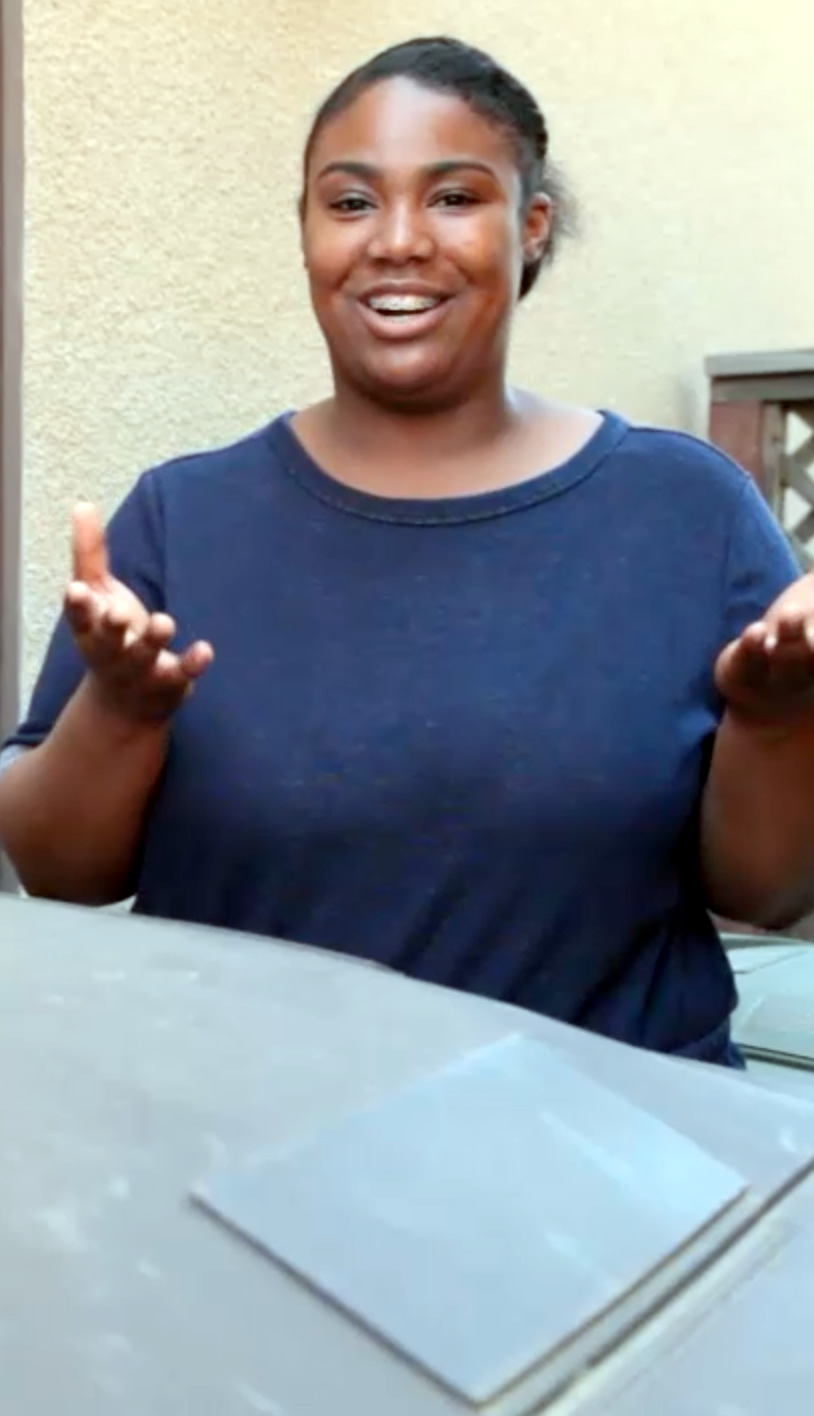
We repeat critical ideas throughout all the modules.
For instance:
Why do we make bad choices when it comes to our money or our welfare?
"Tomato" history helps students discover that bad information can lead to poor choices.
We also tell students that many marketers deliberately give us inaccurate or incomplete information.
Lauren taking out thegarbage introduces the topic.
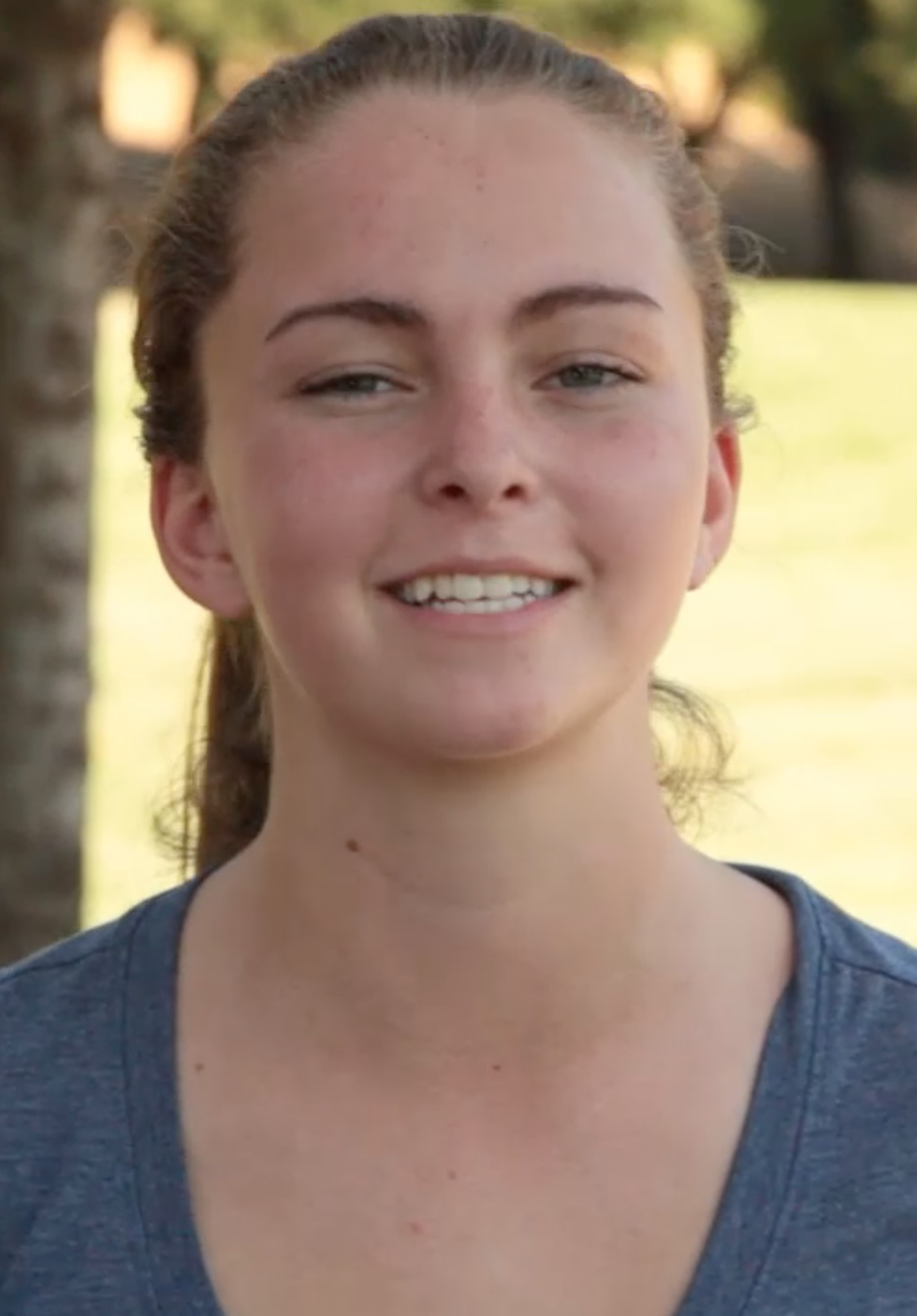
FoolProof's core messages about credit cards:
"Credit cards should really be called 'debt' cards!"
"Credit cards are the main reason many young people and adults mess up their financial lives."
"Credit card companies want you to build debt without thinking."
Watch our credit card video.
What would ads look like if they told the truth?
Here's what! (And this video’s message might be good for you, too!)
Watch the video.FoolProof Anywhere!
Adapting to an ever changing world: Here is how to implement FoolProof into all forms of learning.
FoolProof Classroom
FoolProof Hybrid
FoolProof Remote
Learn more
National Endorsements:
FoolProof's messages are shaped by educators, experts, and consumer advocates, not by marketers.
Our middle school curriculum is the only curriculum in the United States endorsed by the Consumer Federation of America, the National Association of Consumer Advocates, Public Citizen and Fairplay.

Comments from Respected Sources:
![]()
Jackie Gingrich Cushman
Columnist and AuthorJackie Gingrich Cushman is a noted columnist and author. Her website says her mission best: "When all sides on the political spectrum appear content to be talking only to themselves, they are doing both themselves and the rest of the nation a disservice. Finding Common Ground is the only way to save our nation."
We're happy to say Jackie believes FoolProofMe's resources are one place both sides can find common ground.
We're equally happy to say she's joined FoolProofMe's Red and Blue Walter Cronkite Project.
![]()
"Most financial wellness classes around the world teach students that financial well-being requires nothing more than knowledge about the financial products available today and trust in the financial system.
FoolProof's program for middle schoolers teaches students how the financial system really works — including the fact that businesses and financial firms often try to take advantage of them.
But FoolProof's program does not stop there.
It also teaches kids how they can determine which information is and is not trustworthy. It teaches them how they can develop habits that will help them avoid financial distress. And it teaches them how they can assess the amount of debt they can handle.
These are lessons that will last a lifetime, no matter how financial product offerings change."
Lauren E. Willis
Professor of Law and Rains Senior Research Fellow, Loyola Law School Los Angeles Author, The Financial Education Fallacy and Against Financial Literacy Education![]()
"Pre-teens are so vulnerable to advertising! As middle school kids grapple with self-consciousness, out of control hormones, and peer pressure, marketers know exactly how to exploit—and profit from—their vulnerabilities. Middle-schoolers are targeted incessantly with the false message that their success and happiness depends on what they buy. Foolproof's excellent new curriculum is a wonderful tool for helping kids on the cusp of adolescence gain crucial skills for successfully navigating life in a heavily commercialized culture. I hope it's used in middle schools everywhere."
Susan Linn, Ed.D
Lecturer in Psychiatry, Harvard Medical School, Research Associate, Boston Children's Hospital, and Founder of Fairplay.![]()
"As a psychologist who, for 25 years, has been researching the problems associated with materialistic values and consumerism, I'm so pleased to see FoolProof's new curriculum for middle-school students.
I think it is clear, clever, and engaging, and I really like how it talks straight to kids about the ways that marketers and corporations are trying to manipulate and profit off of them.
I strongly encourage teachers and parents to give FoolProof's curriculum a look and decide if they think it is right for the children in their lives."
Tim Kasser, Ph.D.
Professor & Chair of Psychology Knox College Dr. Kasser is author of The High Price of Materialism (MIT Press, 2002), Psychology & Consumer Culture (American Psychological Association Press, 2004), and HyperCapitalism: The modern economy, its values,and how to change them (The New Press, 2018).
More Information on FoolProof:
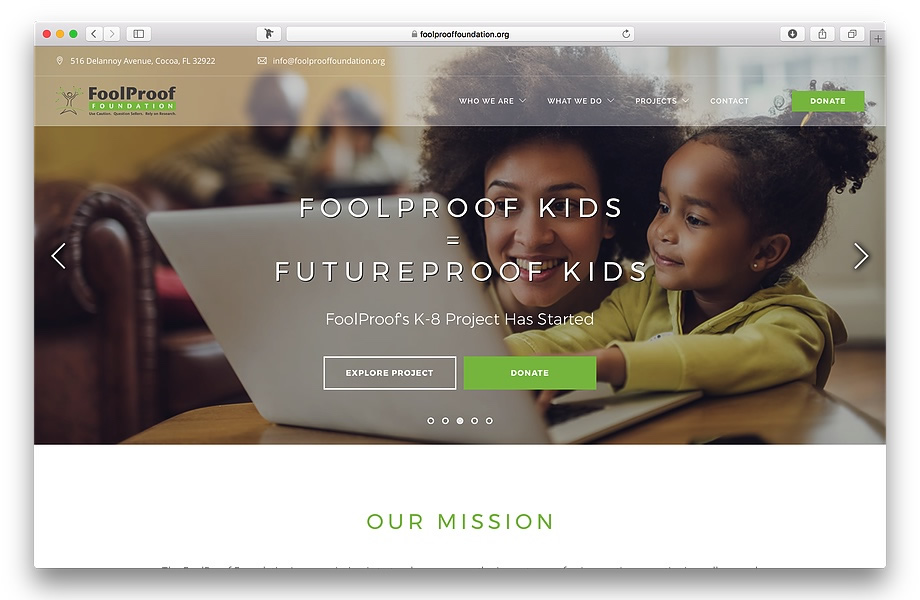
FoolProof Foundation
The FoolProof Foundation's core mission is to teach consumers the importance of using caution, questioning sellers, and relying on independent research before spending money. We have created interactive, online programs to allow us to provide the widest possible exposure to our resources.
More Info.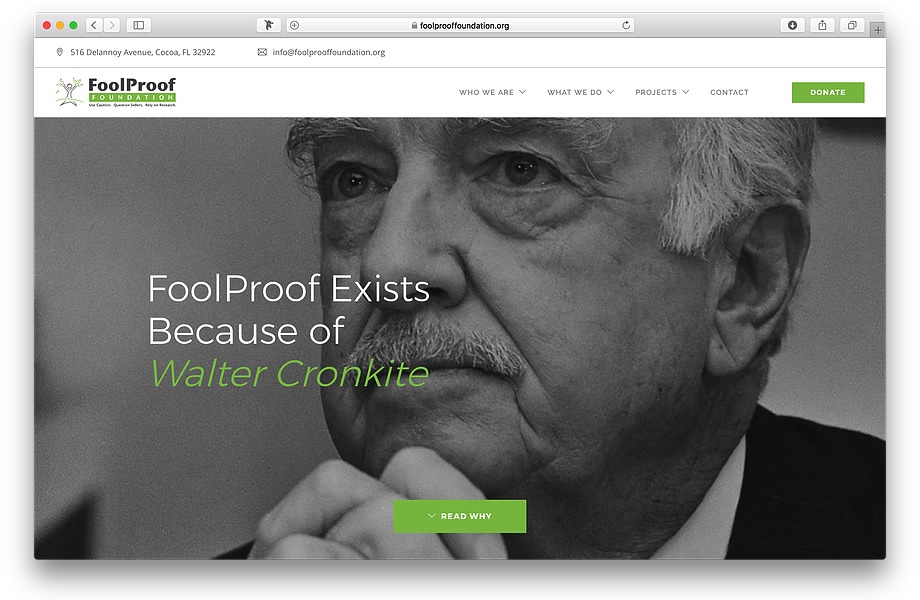
Walter Cronkite Project
In 2003, Cronkite's enthusiastic support of a young consumer advocate named Will deHoo led to the creation of FoolProof. Cronkite was engaged with FoolProof for the remainder of his active life.
More Info.



